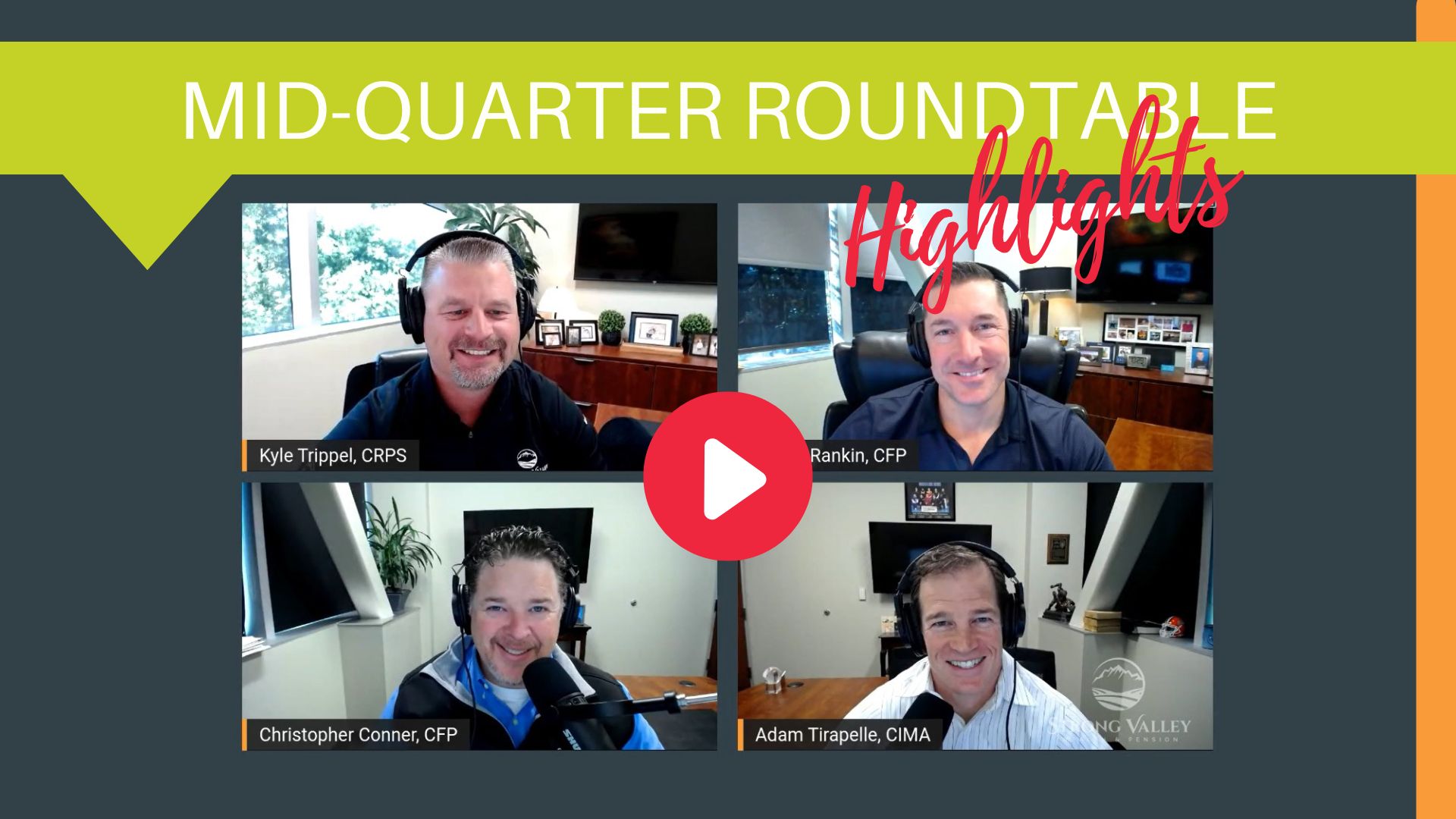You are now leaving the Strong Valley Wealth & Pension, LLC ("Strong Valley") website. By clicking on the "Schwab Alliance Access" link below you will be entering the Charles Schwab & Co., Inc. (“Schwab”) Website. Schwab is a registered broker-dealer, and is not affiliated with Strong Valley or any advisor(s) whose name(s) appears on this Website. Strong Valley is/are independently owned and operated. Schwab neither endorses nor recommends Strong Valley. Regardless of any referral or recommendation, Schwab does not endorse or recommend the investment strategy of any advisor. Schwab has agreements with Strong Valley under which Schwab provides Strong Valley with services related to your account. Schwab does not review the Strong Valley website(s), and makes no representation regarding the content of the Website(s). The information contained in the Strong Valley website should not be considered to be either a recommendation by Schwab or a solicitation of any offer to purchase or sell any securities.

No one knows what tomorrow will bring. Your financial plan must be adaptable too. You don’t just set it and forget it. So how does someone grasp a fast-changing world to formulate a job or career strategy, and an investment strategy to accumulate capital needed to fund their secure future?

As summer heats up, it pays to take a good look at how flexible you are. When you plan for the future, you need to be adaptable. No one knows what tomorrow holds.
This is certainly true in the world of work. To some, labor merely is about a job or the lack thereof. For others, the concept of labor transcends a job. It’s about a career, economic stability for self and family, satisfaction, fulfillment, success, and a sense of mission – a calling. Consider a young person attempting to think about a future of work that may span 50 to 60 years or more. How does one grasp a fast-changing world to formulate a job or career strategy, and an investment strategy to accumulate capital needed to fund their secure future?
Have you ever participated in one of those “future think” company planning sessions? You know, the one that asks where you want the company to be 5, 10 and 15 years hence?
Recent years have taught us that the marketplace in five years could be totally different from what we’re experiencing today. If businesses do not change the plan as they go along, they could be left behind, becoming obsolete and less profitable.
Flexibility counts. Anticipating change counts, with Plan B or even C at the ready. A plan, whether a career plan, a financial plan or a life transitions plan is a road map. Every road is subject to disruption, detours, potential dead ends and rabbit trails.
Yes, you want a concept of where you will be in one, five, 10 years and beyond. But any plan must be dynamic, fluid and adaptable. You cannot set it and forget it.
Every money manager has a turnover ratio, on average selling a certain percentage of stocks every year. Stock buys may disappoint and underperform. Other stocks may reach a targeted sell point and be sold in favor of a better bargain.
Asset classes may underperform or outperform in the short run and then change direction. Assumptions may appear wrong near term and turn out to be sound in the long run. Diversification is important, as crystal balls are fallible.
Everyone, whether a breadwinner, a stay-at-home parent, a retiree or an investor, should have a contingency plan to deal with personal setbacks, career reverses and market disruptions because stuff happens. Change is the only constant. Well, death and taxes, also. Have you reviewed your “what if?” plans lately?
Have you reviewed next year’s tax strategy? Already we hear of end-of-year Christmas and holiday promotions. Have you started planning for next year?
May your summer be flexible.



